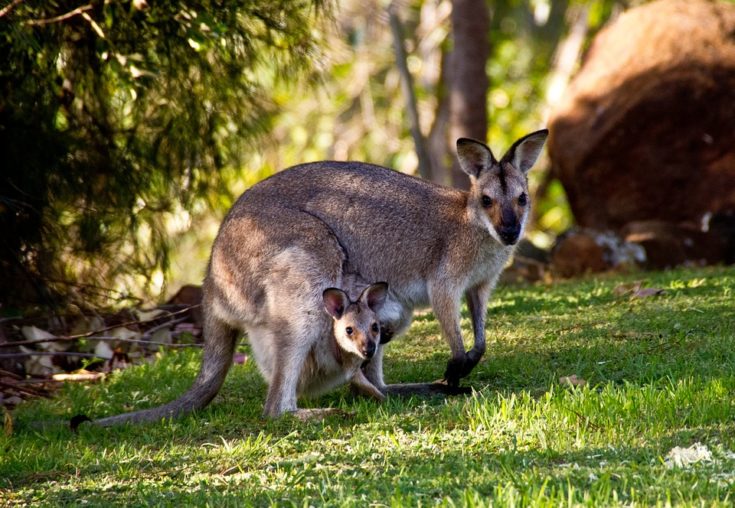Disclosure: This post may contain affiliate links, meaning we get a commission if you decide to make a purchase through our links, at no cost to you. Please read our disclosure for more info.
Premature babies—they’re fragile and need as much nutrition as possible, even more so than “regular babies” to gain the strength and energy they need to survive. While breast milk and formula milk are designed to give that proper nutrition, a premature baby’s underdeveloped gut makes it difficult to absorb proper nutrients from either milk substances. But according to Australian researchers, a different kind of milk may just be able to give premature babies the boost they need–wallaby milk.

That’s right, according to a team of researchers from Deakin University’s Institute for Technology in Melbourne, tamar wallabies (cousins to the Kangaroo) produce a milk contain special proteins that can actually help strengthen and repair a human premature baby’s gut, which ultimately means he or she will be able to obtain more nourishment.
That’s not to say that a premature baby’s new food source will come from wallabies. Instead it’s supposed to serve as a supplement to kick-start gut development so that babies can get all the beneficial value of their mother’s milk.
So don’t think you need to book your next flight Down Under tomorrow—researchers aren’t really encouraging the consumption of wallaby milk (which have also said to contain natural antibiotics). Rather, they are trying to identify the same wallaby milk proteins in humans so that they can discover a way to make human babies produce those identical proteins naturally. While research is only in its developmental stages, lead researcher Kevin Nicholas says he expects these proteins to be located in the fetus or placenta.
But for now health experts say just stick with the breast milk until further research has been concluded—breast milk contains colostrums, bunch of growth nutrients which are also high in protein, antibodies, carbohydrates but low in fat which is key (premature babies have a difficult time processing high-fat substances).
